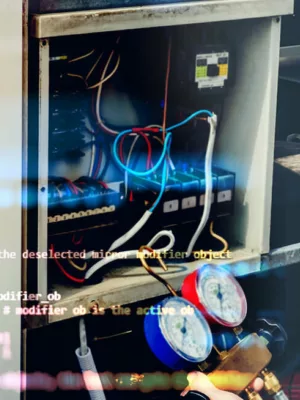
In the Heating, Ventilation, and Air Conditioning (HVAC) industry, safeguarding customer data goes hand-in-hand with delivering comfort. HVAC contractors handle a vast array of client data, from contact details to service histories and sometimes payment information. In an era where data breaches are increasingly common, the emphasis on data security in HVAC CRM systems has never been more critical. This post examines the importance of data security in HVAC CRM and how robust Customer Relationship Management (CRM) systems can be instrumental in protecting sensitive information and complying with industry standards.
The rising need for data security in HVAC
Data breaches are a growing concern across all sectors, and the HVAC industry is not immune. Contractors depend on databases and digital tools to manage customer relationships and service records. Here are key reasons why prioritizing data security in HVAC CRM is important:
- Building customer trust: Clients entrust HVAC contractors with their personal information. A breach not only compromises their data but also erodes their confidence in the service provider.
- Meeting regulatory compliance: The HVAC sector faces specific regulations regarding data management. Non-compliance can lead to severe repercussions, tarnishing a company’s reputation.
By focusing on securing customer data through measures like an efficient CRM system, contractors can maintain client trust and meet regulatory obligations.
Strengthening data security with CRM software
Customized CRM software plays a significant role in enhancing data security in HVAC CRM. These systems offer several features that are key to safeguarding data:
- Access control: CRM platforms offer robust user access management, ensuring that only authorized personnel handle customer data.
- Data encryption: Modern CRM systems employ encryption to safeguard data during transfer and storage.
- Regular software updates: Updates from CRM providers often include important security patches.
- Data backups: Automated backup solutions in CRM systems help prevent data loss during system failures or breaches.
- Audit trails: Audit trails in CRM systems are essential for tracking user activity and detecting suspicious behavior.
Focusing on data security in HVAC CRM enables contractors to manage risks effectively, gain customer trust, and lay the foundation for long-term success.

Key practices for CRM data security
- Compliance features: Look for HVAC-specific CRM systems with built-in compliance tools to manage consent and data retention.
- Employee training: Educate employees on data security practices, including password management and recognizing phishing attempts.
- Regular system audits: Review user access within the CRM to ensure proper data access controls.
- Incident response plan: Develop a clear plan for responding to data breaches or security incidents.
- Staying informed: Keep up with industry regulations related to data security and ensure your CRM aligns with these standards.
Wrap up
By adopting these strategies, you as an HVAC contractor demonstrate your commitment to protecting customer information, moving forward in a way that's more secure and responsible. This proactive approach to data security in your CRM system helps build trust with clients, ensures compliance with industry standards, and establishes a foundation of reliability and professionalism. In doing so, you not only safeguard your business but also contribute to creating a safer and more trustworthy environment for your customers. Your dedication to security is a testament to your integrity and foresight in adapting to the evolving needs of data protection in the business world.
Learn more about how our CRM and ERP application solutions can help streamline your HVAC business operations, contributing to improved efficiency, security, and customer engagement.







